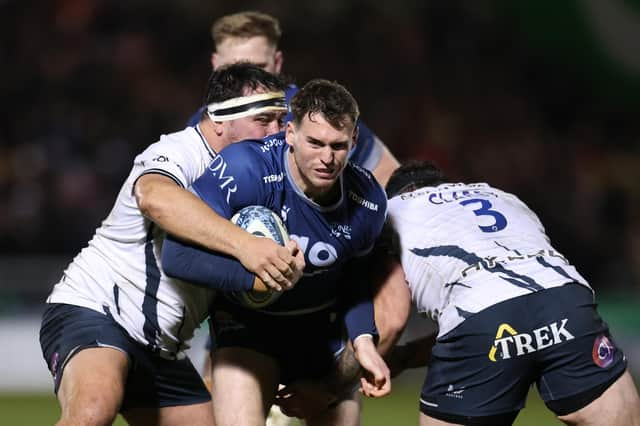Tom Roebuck, Fin Smith and Co have tricky Scotland-England call - and the man to fill Bill Mata's big Edinburgh shoes


Can you have too many players to choose from? Strength in depth may be desirable and I guess that all coaches look to have this, but it can make selection erratic. This often used to be the case in France. There was usually such a rich crop of talented players that a defeat might lead to wholesale changes half-a-dozen or so being jettisoned. Success might not follow.
It was actually looking at the scorecard for the cricket Test between Australia and Pakistan that had me thinking about this. The Australian attack – Mitchell Starc, Josh Hazlewood, Pat Cummins, Nathan Lyon – has been the same for years when all four were fit. Is it any wonder that they have been consistently successful? The same might be said of the great West Indies XIs captained first by Clive Lloyd, then by Viv Richards. There’s much to be said for a settled team.
Advertisement
Hide AdAdvertisement
Hide AdWhen Scotland won the rugby Grand Slam in 1984 – long before the time of substitutions at the coach’s whim – we used only 20 players in the four matches, three of whom came on as replacements for players who left the field injured. In 1990 we were even more consistent, using only 16 in the four matches, the 16th being being Derek Turnbull who replaced an injured Derek White midway through the match against England. Now of course it is common for all seven of the squad on the bench to come on in the course of the game. Whether this makes for better rugby – or a better spectacle – is doubtful. But substitutes in rugby as in football give coaches the opportunity to influence the play. Still, this is how it is and no team has mastered the business of substitutions more effectively than South Africa in the last two World Cups.


There are, according to what is perhaps a rough calculation, at least 60 still active players who have represented Scotland. Some have been tried and found wanting; others – Duncan Weir – for instance are, one assumes, in the evening of their careers, though that can’t be said of the venerable WP Nel. Then there are some still uncapped players like Edinburgh’s Matt Currie and Glasgow’s Ally Miller, whose recent form makes them contenders for the Six Nations squad, if not yet the starting XV,
Even so, one still reads of players in England who have a dual qualification and are being tracked by Scotland and in some cases invited to opt for Scotland. Some will be wary, either because they have always identified with England, sometimes because they may see a better chance of getting international honours for England rather than Scotland. The most interesting of these is the young Northampton fly-half Fin Smith. He is of course a product of the English development system but as the grandson of Tom Elliott, a doughty prop for Gala, Scotland and the Lions, he may feel the pull of ancestral pride. Quite likely, eager to play international rugby, his decision may depend on where and for whom he can do so most quickly. He is some ten years younger than Finn Russell and George Ford – Owen Farrell too if his opting-out from this season’s Six Nations is only temporary, and three or four years younger than Harlequins’ Marcus Smith. Nice of course to be in demand, but a difficult decision.
Meanwhile, the news that Bill Mata will be leaving Edinburgh for Bristol at the end of this season will rightly disappoint Edinburgh’s supporters. He has been a tremendous player for the club and will be devilishly hard to replace. Perhaps there can be a straight swap with Magnus Bradbury returning to Edinburgh. Not 30 until next August, he still surely has time to re-establish himself in the Scotland side. A few years ago it looked as if he might be to Edinburgh and Scotland what the great Peter O’Mahony has been for Munster and Ireland. It never quite worked out. Rightly or wrongly, there was a perception that he was inclined to drift in and out of matches, a reputation perhaps unfair but hard to shake off. It is agreeable to think that he may yet fulfil the rich promise he showed some years back.